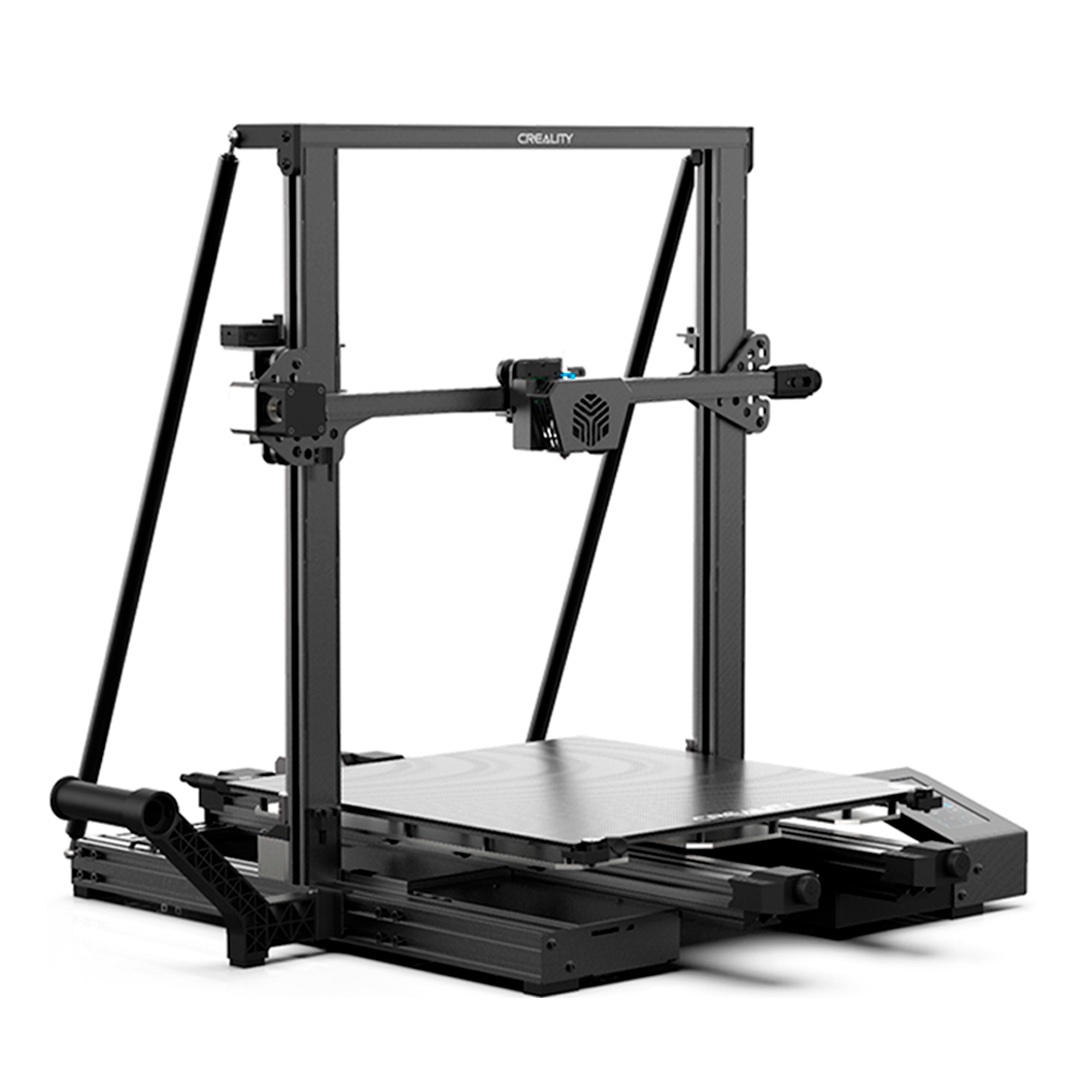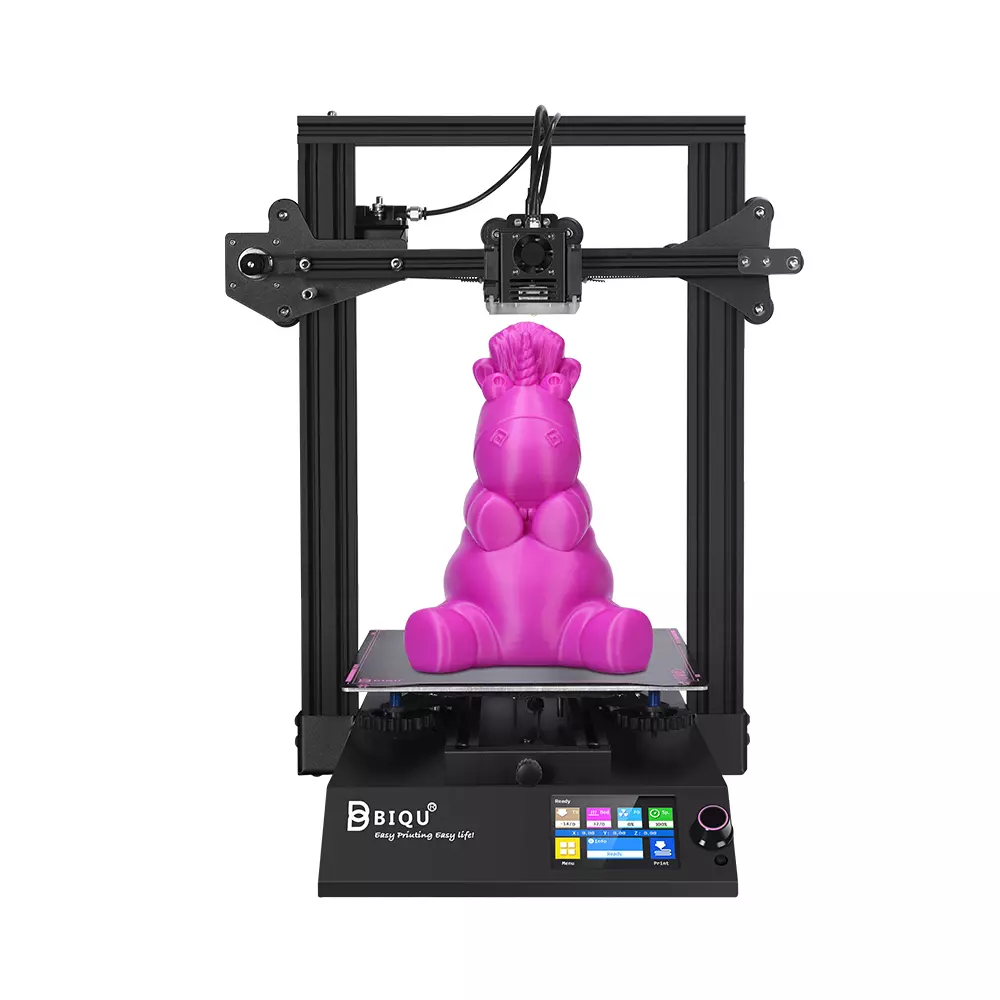Compare CR 6 Max vs BIQU B1
Comparison between the best 3D printers
Choose the best 3D printer at the best price. The cheapest 3D printers are here.
Buy a 3D printer here with 3D Fila.
 |
 |
|
| Model | CR 6 Max |
BIQU B1 |
| Printing Material | Filament | Filament |
| Buy Filament for Creality 3D CR 6 Max | Buy Filament forBigTreeTech BIQU B1 | |
| Estimated price | $700,00 | $269,00 |
| Manufacturer | Creality 3D | BigTreeTech |
| Release Year | 2021 | 2020 |
| Print Volume [mm] | 400x400x400 | 235x235x270 |
| Printer Size [mm] | 725x640x691 | 412x402x492 |
| Weight [kg] | 14 | 8,00 |
| Power Loss Recovery | YES | YES |
| Enclosed printer | NO | NO |
| Bed Leveling | Automatic | Manual |
| Filament End Sensor | YES | YES |
| Bed type | Heated | Heated |
| Power supply system | Bowden | Bowden |
| Standard nozzle | 0,4 | 0,4 |
| Maximum Nozzle Temperature [°C] | 260 | 250 |
| Maximum Bed Temperature [°C] | 90 | 100 |
| Maximum printing speed [mm/s] | 100 | 100 |
| Filament holder | YES | YES |
| Camera for supervision | NO | NO |
| Recommended filaments | PLA, PETG | PLA, TPU, ABS, PETG |
| Recommended slicers | Cura, Simplify, Slic3r, IdeaMaker | Cura, Simplify, Slic3r |
| Maximum Resolution [mm] | 0,1 | 0,1 |
| Processor | 32 Bits BTT SKR V 1.4 | |
| Display | Display touchscreen 4,3'' | Touchscreen TFT 3,5'' |
| Power Supply | 110/220V / 500W | 24V / 360W |
| Connectivity | SD / USB | SD / USB |
| Operating systems | Windows, Mac, Linux | Windows, Mac, Linux |
| Date of registration in the system | 2022-11-04 | 2021-04-14 |
| Release date | 2021 | 2020 |
| Extra features | Crealitys CR-6 Max printer offers a large 400 x 400 x 400mm build area, perfect for larger projects without dividers. Its auto-leveling system and force sensor simplify setup. It has a 4.3-inch touchscreen and convenient features like a tool drawer and filament holder. Plus, its modular hotend, redesigned extruder, and silicon carbide-coated build plate improve print quality. | The BIQU B1 is an advanced 3D printer with a silent 32-bit BTT SKR V1.4 motherboard and ARM Cortex-M3 CPU, offering DIY interfaces (I2C, SPI, WiFi) and dual Z-axis. Its dual BTT B1 TFT35 V3.0 operating system allows real-time monitoring and multiple printing modes, including G-code visualization effects. It stands out for its BIQU SSS (Super Spring Steel), ensuring easy model adhesion and simplified removal, with the possibility of using it on both sides. It includes a filament sensor, automatically pausing printing in case of filament breakage. The multicolored RGB lights integrated into the hotend allow you to view the printing status even at night. Additional notes include the need for a BIQU-specific Type-C cable and extra interfaces for smart filament sensor and BL Touch. |
| Support for multiple colors and materials (AMS and CFS) | NO | NO |
Notes * |
||
| Cost-benefit | 6 / 10 | 7 / 10 |
| Hardware | 2 / 10 | 2 / 10 |
| Tela | . | . |
| Print volume | 4 / 10 | 3 / 10 |
| Performance | 1 / 10 | 1 / 10 |
Conclusion |
| In comparing the Creality CR 6 Max and the BIQU B1 3D printers, several key differences stand out that can guide a purchasing decision based on both features and cost-effectiveness. The Creality CR 6 Max offers a significantly larger print volume, making it more suitable for larger projects or when printing multiple models simultaneously. Its automatic bed leveling, along with additional convenient features like a larger touchscreen and improved print quality mechanisms, adds to its appeal as a more advanced option. However, it comes at a higher price point, which may deter budget-conscious buyers. On the other hand, the BIQU B1 stands out for its affordability and compact design. While it has a smaller print volume and manual leveling, it incorporates several advanced features like a silent motherboard and dual Z-axis, delivering good value for those looking for a reliable entry-level printer. Its compatibility with various filament types and user-friendly features like RGB status lights enhance its usability. Overall, if budget is a priority and the user requires a solid, versatile printer for moderate use, the BIQU B1 may be the better choice. Conversely, for those needing larger print capabilities and willing to invest more for enhanced features, the CR 6 Max would be the suitable option. Hence, the selection should align with specific printing needs and financial constraints, keeping in mind that both printers provide excellent performance within their respective price tiers. |

